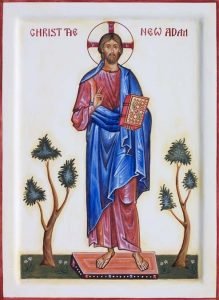 I would continue the thought I started in the last issue of the Bulletin about the surprise Christ gave to the early Christian community with His Ascension back to heaven. In truth, the early post-resurrection Christian community thought the story had reached its conclusion with Christ’s resurrection. It was, of course, only beginning. There was work to be done, a witness to be proclaimed, and those left behind would inaugurate that work and witness. Moreover, the early Christian generations would play a key role in witnessing to, incarnating and interpreting the story of Jesus’ life, death and resurrection. Though Christ was physically leaving, he promised the disciples that He would soon return to them through the Spirit, the Spirit who would empower them for ministry and form, them into Christ’s body on earth, the church.
I would continue the thought I started in the last issue of the Bulletin about the surprise Christ gave to the early Christian community with His Ascension back to heaven. In truth, the early post-resurrection Christian community thought the story had reached its conclusion with Christ’s resurrection. It was, of course, only beginning. There was work to be done, a witness to be proclaimed, and those left behind would inaugurate that work and witness. Moreover, the early Christian generations would play a key role in witnessing to, incarnating and interpreting the story of Jesus’ life, death and resurrection. Though Christ was physically leaving, he promised the disciples that He would soon return to them through the Spirit, the Spirit who would empower them for ministry and form, them into Christ’s body on earth, the church.
Again, layers of questions present themselves. Who is this Holy Spirit who will infill and energize the church? How is the Holy Spirit related to Christ and to the Father? Are Father, Son and Spirit simply different manifestations of one divine being, or is the Father distinct from the Son, and the Son from the Spirit? If these distinctions exist, exactly who is the Holy Spirit? What is the Spirit’s work and mission? And what of the witnessing community Jesus predicts the Spirit will form, infill, power and direct? How can the church, made up of sinful human beings, still be called by the apostle Paul Christ’s “body”, the fullness of him who fills all in all”? In short, what is the church?
As the early church pondered these questions, its thinking coalesced around central theological areas:
– The question of authority: To what should the church look for its guiding authority? What is the relation between Scripture and the apostolic tradition, and how do these two relate to one another in the formation of doctrine?
-The question of the Trinity: Is Christ genuinely Divine? If so, how is the divinity of Christ to be understood in relationship to the Father and the Spirit?
-The question of the incarnation: What is the relationship between Christ’s deity and His humanity? If Jesus was truly divine, was he also truly human? How can He simultaneously be both?
-The question of Christ’s work: How has Jesus’ ministry, death and resurrection overcome sin and introduced the life of the age to come into this present evil age?
There are still three more basic questions that I shall share in the next issue of this article.
